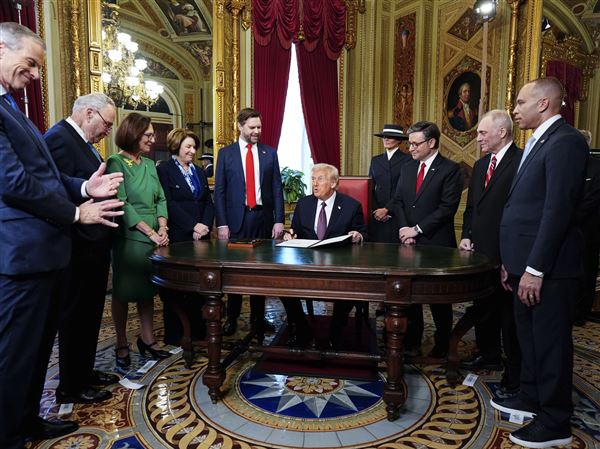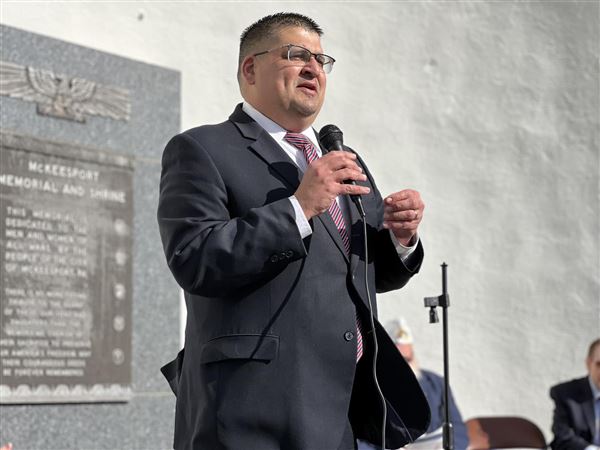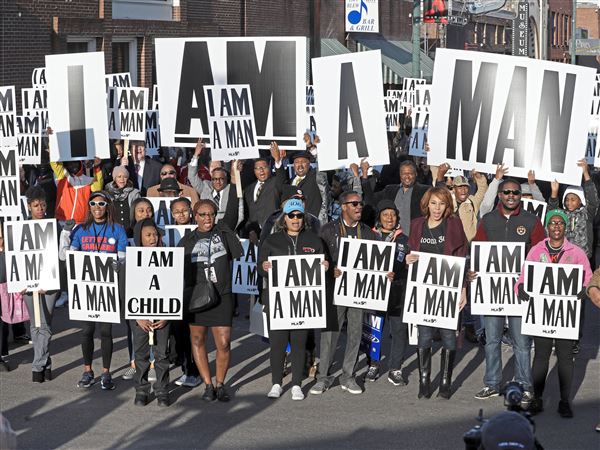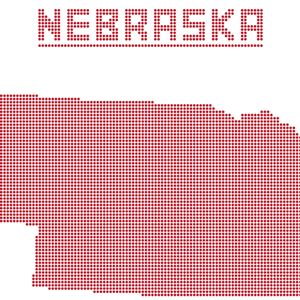NORRIDGEWOCK, Maine — Could towns like this, a tiny crossroads of fewer than 1,300 households — now draped in brilliant autumn foliage colors, by Election Day perhaps resting quietly under a gentle dust of snow — decide whether Democrats or Republicans rule the House, whether subpoena-assisted investigations are mounted against President Donald J. Trump and Supreme Court Justice Brett Kavanaugh, whether impeachment proceedings are undertaken against either, or both, of them?
Could Republican Rep. Bruce Poliquin, who stopped here the other day to help dedicate a bridge in honor of a slain police officer, be defeated by challenger Jared Golden, who left college shortly after the 2001 terrorist attacks to join the Marines and who is campaigning with tattoos that feature a Celtic cross, the sun and the moon — and with the new moderate Democratic rhetoric full of the words “change” and “ service” and “leadership”?
These are some of the mysteries of the 2018 midterm elections, which will deliver an important national message — who’s in control of the House, who runs the Senate — but will be determined in 370 separate elections, all of them different, none quite so distinctive as the one being conducted in this Maine congressional district, which delivered a peculiar single electoral vote for Mr. Trump two years ago; which has many of the distinctive markings of Trump territory; which has been targeted by the Democratic Congressional Campaign Committee as a potential party pick-up; which may also be vulnerable to the peculiar appeal of state Rep. Jared Golden; and which is regarded as evenly split between the two parties and candidates.
“Races like this in Maine,” former GOP Sen. Olympia Snowe said in an interview, “often come down to the small towns.”
Maine is an idiosyncratic state by any measure: It has jagged mountains in the west and a jagged seacoast in the east. It is a complex combination, a tourist retreat for the wealthy and the home of many rural poor voters. Its politics have peculiarities that come only with a state that has had governors and now a senator who are Independents, in party name and in inclination. It awards single electoral votes for president for each of its two congressional districts.
The Poliquin-Golden congressional race will be determined by rank choice voting, a reformist’s dream and a forecaster’s nightmare: Voters will rank their choices for the House among four contestants, the two major-party candidates and two others who will likely win 1 percent of the vote or less. If in a close race neither Mr. Poliquin nor Mr. Golden wins a majority, the election will turn on how many voters select either one of them as their second choice. Predicting the outcome of that is about as difficult as predicting the date of peak color of the maples and elms in Androscoggin County.
Mr. Poliquin won the 2016 contest by nearly 10 percentage points, about the same margin of victory that Mr. Trump recorded to claim the district’s single electoral vote while Maine’s three other electoral votes went to Hillary Rodham Clinton 48 percent to 45 percent in a contest where three-quarters of the registered voters actually went to the polls.
So turnout — never as high in midterm elections as in presidential election years — is a big factor here, as it is across the country. But if any place with a contested House race is primed to re-elect a Republican, this one is. Then again, if any place with a contested House race is congenial to a Democratic challenger, this one is, too.
“If Jared Golden can’t win this race in the 2nd district, then no Democrat can win in the 2nd district,” says L. Sandy Maisel, a political scientist at Colby College whose home in Rome, Maine, is just inside the sprawling district that covers 27,326 square miles, more than 2,660 times as large as the New York district that includes the northern part of Manhattan and part of the Bronx. “Golden is tailor-made for this district. His father was a golf-course superintendent, he’s apolitical enough to have worked for [Republican Sen.] Susan Collins, he can handle a rifle, there’s no pretense to him, and he’s running against a guy who made his money on Wall Street.”
But Mr. Poliquin, 64, is no pushover. He has bigtime Republican financial support, the advantages of incumbency, worked on veterans’ health care issues that are important in this district and makes a credible boast of bipartisanship. His campaign manager, Brent Littlefield, refused entreaties to permit him to grant an interview for this column, saying, “We 99.9 percent do not do national media.”
Mr. Golden, 36, is one of the new wave of Democratic congressional candidates, in the mold of Rep. Conor Lamb, the Pittsburgh-area Democrat and Marine veteran who won a close special election in March. “Jared is part of a new generation of leadership, standing up to change our politics, knowing how to be bipartisan,” says Democratic Rep. Seth Moulton of Massachusetts, the first and most prominent member of the breed that campaigns on a modern twist of the approach John F. Kennedy used when, more than a half-century ago, he, too, spoke of a “new generation of leadership.”
Listen to Mr. Golden, who saw combat in Iraq and Afghanistan, characterizing his campaign: “This election nationally is about a new generation. This is a leadership moment in the country. The message is young veterans of both parties have learned leadership lessons. These are people prone to deflecting credit from themselves, saying when things went right it was the platoon, not them, who did it. They point fingers when things go wrong, pointing them at themselves, taking full responsibility.”
A Republican group has seized on Mr. Golden’s tattoos (”Liberal Jared Golden”), with the Democrat responding with a television spot putting the challenger on a lobster boat (”It’s time for Maine to show Washington what needs to go overboard,” citing “career politicians like Bruce Poliquin”). Nobody said this race didn’t have its own local character, though a Washington Post survey of this and 68 other competitive districts, mostly held by GOP candidates, showed that voters narrowly preferred Democratic candidates.
But this is a local contest, and despite Mr. Trump’s capture of that unusual single electoral vote, hardly anyone is talking about the president here. “I’m on the road a lot,” says Mr. Golden. “People don’t ask me about him.” Here it is tattoos and lobster boats and—both candidates hope, in their own way — another expression of independence from fiercely independent Maine.
David M. Shribman is executive editor of the Post-Gazette (dshribman@post-gazette.com, 412-263-1890).
First Published: October 14, 2018, 11:00 a.m.


















